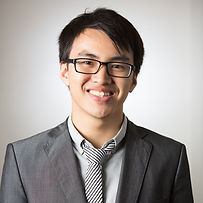People
Principal Investigator

Professor
My research focuses on cognitive and language development, from infancy to early childhood. For the last decade, my collaborators, students, and I have advocated for a new approach to cognitive development, namely rational constructivism. We have argued that human infants begin life with a set of proto-conceptual primitives such as object, number, and agent, and as young learners acquire language, these initial representations are transformed into a format that is compatible with language and propositional thought. We have suggested that three types of learning mechanisms explain both belief revision and genuine conceptual change: (1) Language and symbol learning; (2) Bayesian inductive learning; and (3) Constructive thinking. Lastly, we have argued that infants and children are active learners, and cognitive agency is part and parcel of development. For some representative publications on this view, see Xu (2019, Psychological Review), Fedyk and Xu (2018, Review of Philosophy and Psychology), Luchkina and Xu (2022, Psychological Review), Denison and Xu (2019, Perspectives on Psychological Science), Xu and Kushnir (2013, Current Directions in Psychological Science), and Xu and Kushnir (2012, Rational Constructivism in Cognitive Development – an edited volume).
Danny Li
Lab Manager
I am interested in studying the acquisition and development of language as well as social reasoning in children. In addition to being Lab Manager, I am also a research assistant under Alyson working on symbol learning and reasoning. Currently, I am an undergraduate student pursuing a bachelors in Neuroscience.
Lab Manager

Gabriella Morales
Project Manager
gabriella.morales@berkeley.edu
Gabriella is the project manager for the Tsimane' project, investigating mathematical cognition and probability reasoning in the U.S. and Bolivia. This is a joint project between the Piantadosi Lab and the Xu Lab. Before joining the BELLab, Gabriella received a B.A. in Psychology from Colorado College.
Project Manager

Postdoctoral Fellows

Sean Yinyuan Zheng
Postdoctoral Fellow
What cognitive skills enable children to become an adept reasoner of the world? During my doctoral studies, I have focused on the ability to make comparisons. My current interests lie in children's statistical and probabilitic learning, and together how these mechanisms can support rapid, domain-general knowledge acquisition.
Graduate Students

Stephanie Alderete
Graduate Student
How do humans process information about the world in order to make informed and rational decisions? I investigate the developmental origins of decision-making by studying how infants and young children make decisions and reason about the world around them. Currently, I am studying children’s ability to do probabilistic and logical reasoning.


Alyson Wong
Graduate Student
I am broadly interested in infants' and children's conceptual development and probabilistic reasoning abilities. I am currently interested in how infants and children use probabilistic information to make decisions and reason about the world around them. I am also interested in the development of compositionality and the role of language in conceptual development.
Cristina Sarmiento
Graduate Student
I am broadly interested in how children use language and social interactions to learn about objects and the social world. Before joining the BELL lab, I received a B.A. in psychology from UCLA and was the lab manager for Dr. Elizabeth Spelke's lab for developmental studies at Harvard University.
Hailey Lambert
Graduate Student
My research interests focus on how children play an active role in their own linguistic and cognitive development. I am also interested in research involving marginalized communities, particularly disabled populations and members of Indigenous Nations. This interest is informed by my identity as an enrolled citizen of the Choctaw Nation of Oklahoma and a registered first-generation descendant of the Eastern Band of Cherokee Indians.

